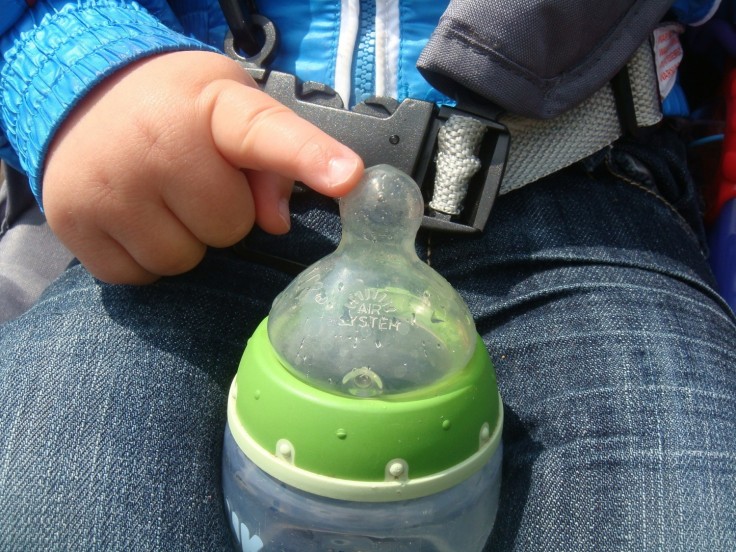
Brown's Reusable Sponge Baby Bottle Cleaning Brush has 55,598 global ratings and 4.6 stars out of 5 ratings. This reusable baby bottle brush combines sponge and bristles for thoroughly cleaning glass and plastic bottles.
This product has a built-in ridged cleaner, making cleaning the bottle nipples quick and effortless so that you won't have to reach those small spaces.
It now has less than a 22 percent discount making it very affordable with a current price of $10.19. It has the perfect size for an easy grip and has a grooved no-slip handle that controls the cleaning brush from sliding out of your hand.
The Brown's reusable sponge baby bottle cleaning brush has a suction cup base, making the brush stand upright, or you can take out the suction cup and clip it to the inside of the sink.
This durable product works with Dr. Brown's baby bottles and other narrow or wide-neck brands.
Read Also : Amoxicillin Shortage: What Parents Need to Know
Why are cleaning and sterilizing baby bottles important?
Dr. Erika Landau, a pediatrician in New York City and co-author of "The Essential Guide to Baby's First Year," says deep cleaning and sterilization are not required every after use. Nonetheless, sterilizing is necessary before using them for the first time.
However, on your end, you can still sterilize your newborn's baby bottle every few weeks to be safe, particularly after your child has been sick.
The Centers for Disease Control and Prevention (CDC) reported that sanitizing is very important, especially when the baby has a poor immune system, is born prematurely, or is less than months old.
Moreover, parents need to quickly clean the baby's bottles after every feeding to avoid a build-up of bacteria and germs. Thus, after washing hands, thoroughly scrub bottle parts in soapy and warm water with a brush and air dry the bottle, per Parents.
Throw away the unfinished formula
Those baby bottles that are not cleaned properly attract germs that might gradually cause illness in newborns. Hepatitis A Virus (HAV) and Rotavirus are generally transferred through poor sanitation practices that might contaminate unsanitized baby bottles.
HAV can infect the newborn's livers, and Rotavirus can cause diarrhea and dehydration.
Babies with weak immune systems are not strong enough to fight off a range of infections. Thus, one of the fundamental ways to make babies healthy is to lessen the odds of them getting sick in the first place.
If your child will not finish drinking milk in a bottle within two hours, immediately throw the unfinished formula, as it could be where certain germs can quickly grow. This usually occurs when the formula is contained in a somewhat used bottle, per CDC.
Ola Baby suggests replacing the baby bottles every 4-6 months. If the glass bottles are still in excellent condition, you might not need to replace them.
Still, you need proper maintenance and care to extend the baby bottles' safety and longevity.
Related Article : PandaEar 3 Pack Bibs: Its Non-Messy and Waterproof Features Allow Babies to Enjoy Their Food